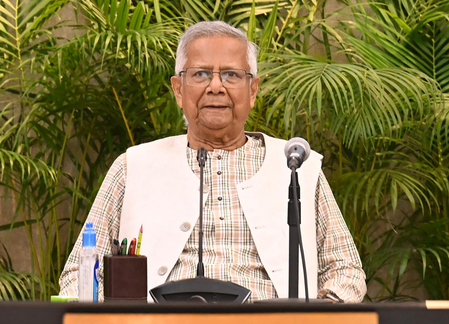

New Delhi, Sep 14 (IANS) The promise of restoring democracy in Bangladesh after the ouster of former Prime Minister Sheikh Hasina in 2024 has given way to rising lawlessness, mob justice, and emboldened radical groups, raising doubts about the credibility of elections under Nobel laureate Muhammad Yunus’s interim administration.
Hasina’s dramatic downfall was hailed as an opportunity to reset Bangladesh’s politics, but the absence of strong institutions and factional divides quickly created a power vacuum.
Yunus’s caretaker government, envisioned as a technocratic bridge, has instead presided over cascading disorder.
In the year following Hasina’s exit, rights groups documented 637 lynchings nationwide, with mob justice replacing formal dispute resolution, according to a report by European Times.
“In January 2025, the police themselves acknowledged the scale of violence, releasing a controversial report that sought to downplay the communal dimension. Out of 1,769 attacks against minorities, authorities claimed that more than 1,200 were “politically motivated” rather than religiously inspired, with only 20 classified as purely communal,” the report said.
Police, often accused of complicity or paralysis, have failed to restore public trust. Minority communities remain the most vulnerable.
Between August 2024 and mid-2025, watchdogs recorded 2,442 incidents of communal violence targeting Hindus, Buddhists, Christians and Ahmadis, including arson, killings and sexual assaults.
A February 2025 UN report warned of deliberate attacks on minorities and indigenous groups, accusing the interim government of failing to act.
Local leaders say only token investigations have been opened, with just 62 cases registered and 35 arrests made.
Notably, radical voices have also gained ground.
In March, thousands of Hizb-ut-Tahrir supporters marched openly in Dhaka demanding an Islamic Caliphate.
Universities and media outlets now face intimidation, while women report escalating harassment in public spaces.
The deteriorating security environment has raised alarms over the feasibility of upcoming elections in the South Asian country.
Analysts argue that without law and order, minority candidates and secular voices cannot campaign freely, polling officials cannot operate safely, and voters cannot participate without fear.
–IANS
sas/khz
